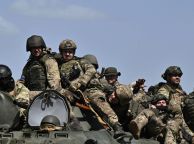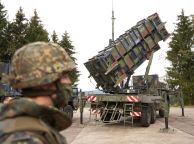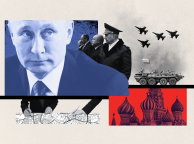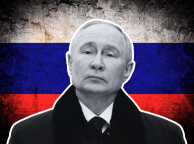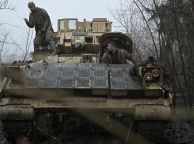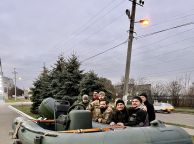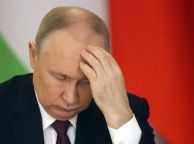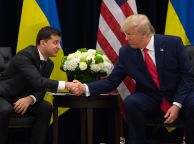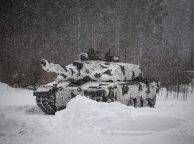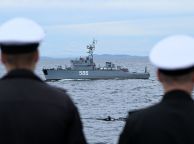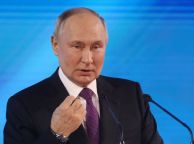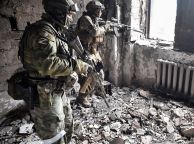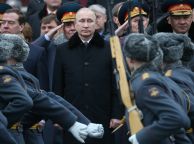By Kaitlin Lewis
Ukrainian President Volodymyr Zelensky issued a warning to former U.S. President Donald Trump about what could lie ahead if Russia is allowed to succeed in Ukraine.
The Ukrainian leader was prompted by a journalist during the International Media Council at the World Economic Forum on Wednesday about his response to Trump's claim that he could bring an end to the war in Ukraine in 24 hours. The former president has yet to reveal any specifics on how he would fulfill his promise, but he has guaranteed that the war "will end immediately" if he is reelected to the White House in November 2024.
Trump's bid for reelection has also sparked questions about what the future of American aid for Ukraine will look like. The former president has shown opposition to continuing to provide support for Kyiv's military, and some of his closest Republican allies in Congress have blocked President Joe Biden's requests for additional aid.
Speaking to members of the media in Davos, Switzerland, Zelensky posed questions about what Trump plans to do in the event that Russian President Vladimir Putin expands his aggression outside of Ukraine, such as if Moscow decided to invade a NATO alliance member.
"Then the question is, what will Trump do after that, if after Ukraine, Russia occupies a NATO country?" Zelensky asked, according to the news agency Interfax-Ukraine.
"I mean, he decided that if you don't freeze the conflict, if you let Putin go all the way into Ukraine, then he will stop," he continued. "But Putin will not stop. So what will Donald Trump do in the United States after that? Because in that case, it means that Europe lost and lost the largest and most powerful army in Europe, because it lost Ukraine."
Newsweek reached out to Trump's press team via email on Wednesday for comment.
Several countries that are members of NATO have taken precautionary steps to prepare for a possible direct conflict with Russia in the coming years. German intelligence on the country's Council on Foreign Relations predicted in November 2023 that the alliance has roughly five to nine years to prepare for a war against Moscow. Meanwhile, Estonia's Foreign Intelligence Service said in a report last month that such a conflict is possible in the next three to five years.
Trump's reelection chances have sparked anxiety among some European officials about the West's ability to hold off Russia's aggression. The former president was accused last week of telling a high-level European Union official while he was in office that he would never enable the U.S. to help Europe if it came under attack.
While Trump hasn't addressed the claim publically, he failed to commit to staying in NATO during his second term when asked by Fox News host Bret Baier during a town hall last week.
"Depends if they treat us properly," Trump said. "Look, NATO has taken advantage of our country. The European countries took advantage."

